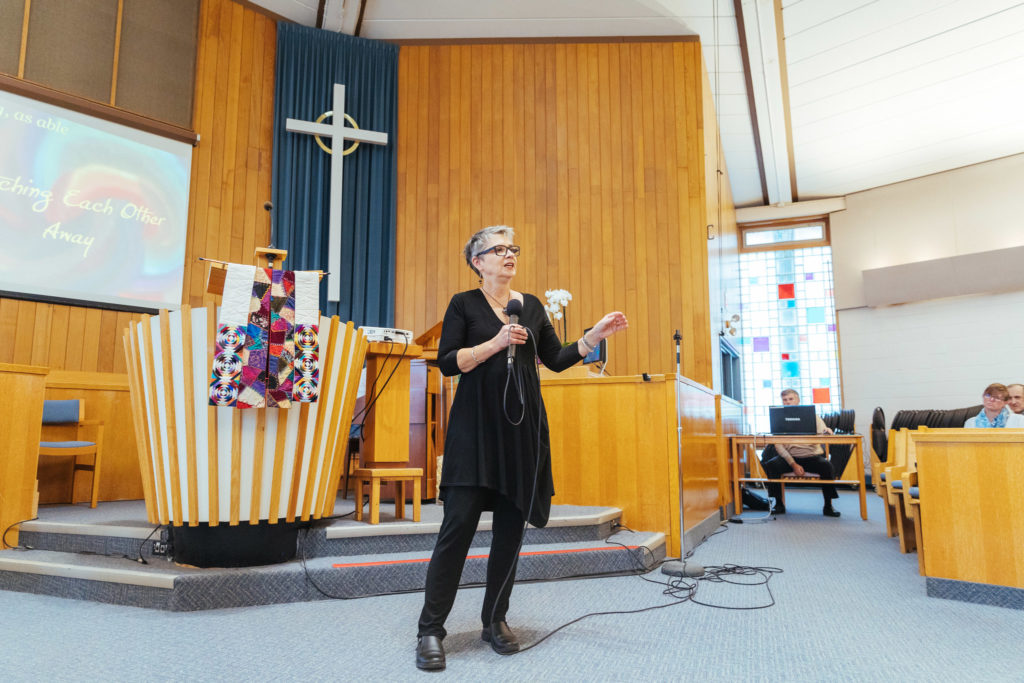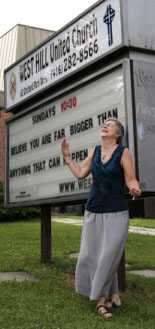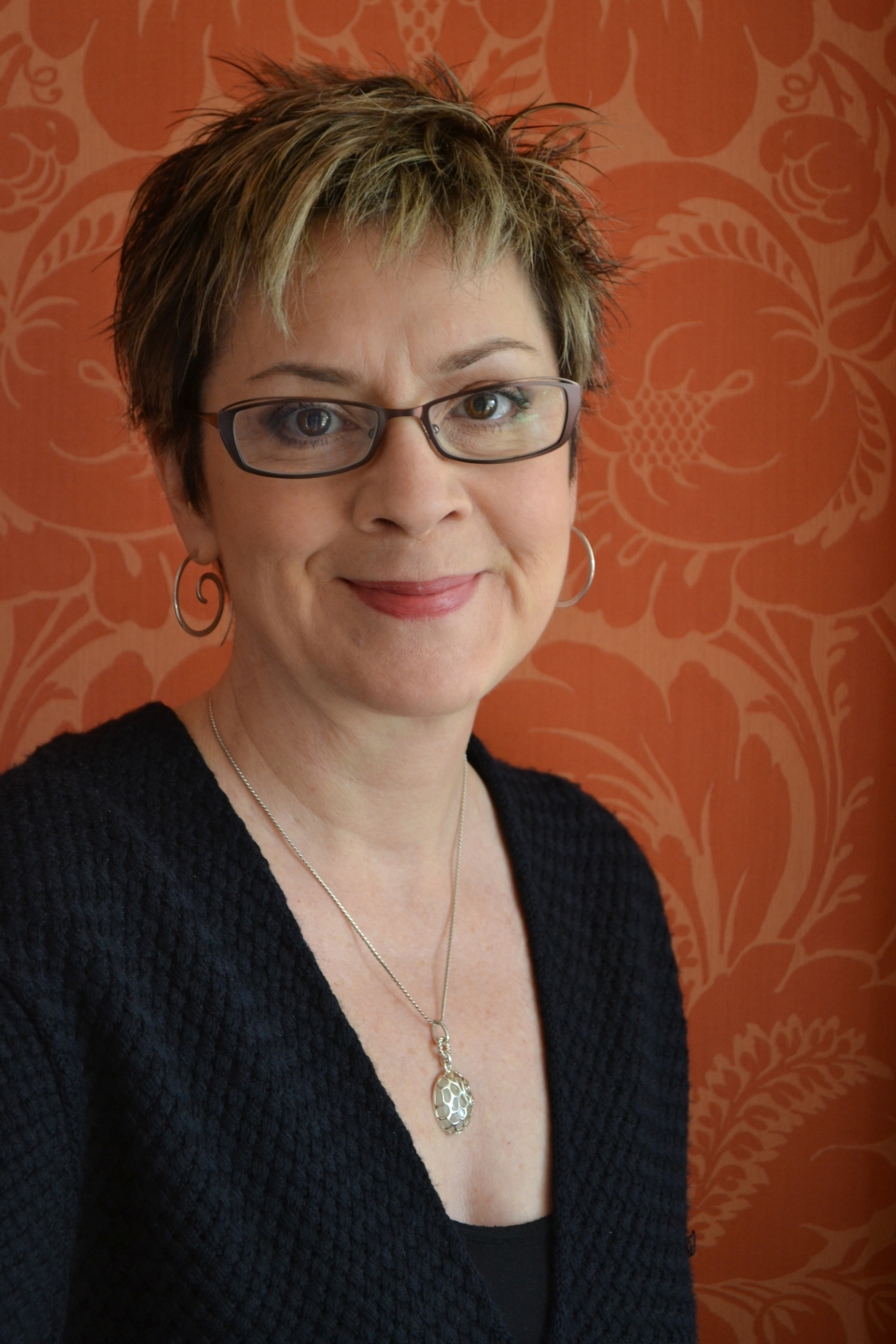 Rev. Gretta Vosper is a minister in the United Church of Canada; she is also an atheist. Or, to keep up with the times, I should probably say she self-identifies as an atheist. The Anglican Church of Canada, a loose affiliation of gay, lesbian, transsexual and bisexual individuals who like to dress up in strange robes and backwards collars self-identifies as a Christian denomination. As you can see, Vosper and the ACoC have a lot in common: both are at war with reality.
Rev. Gretta Vosper is a minister in the United Church of Canada; she is also an atheist. Or, to keep up with the times, I should probably say she self-identifies as an atheist. The Anglican Church of Canada, a loose affiliation of gay, lesbian, transsexual and bisexual individuals who like to dress up in strange robes and backwards collars self-identifies as a Christian denomination. As you can see, Vosper and the ACoC have a lot in common: both are at war with reality.
An atheist minister might seem to the naïve to be an ecclesiastical oxymoron. That doesn’t worry Vosper who is quite open about her disbelief. So much so that the United Church expressed some doubts about employing her:
We have concluded that if Gretta Vosper were before us today, seeking to be ordained, the Toronto Conference Interview Committee would not recommend her. In our opinion, she is not suitable to continue in ordained ministry because she does not believe in God, Jesus Christ or the Holy Spirit. Ms. Vosper does not recognize the primacy of scripture, she will not conduct the sacraments, and she is no longer in essential agreement with the statement of doctrine of The United Church of Canada.”
Other than the fact that she has not yet, as far as I know, announced that she is a lesbian, she has all the qualifications to fit easily into the ACoC. No doubt it was the rumour that the ACoC considered Vosper to be quite a catch that convinced the United Church to keep her: they have “settled all outstanding issues between them”.
You would think that settling the differences between atheism and theism, a miracle only a little less spectacular than the raising of Lazarus, would be the cause of great celebration, a triumph to be shouted from the housetops. Justin Welby must be green with envy: he can’t even settle the differences in his own church. But the United Church has decided to hide it: “The terms of the settlement, beyond the fact that the Rev. Ms. Vosper may remain in ministry at West Hill United Church, are confidential.” Poor Justin will never know how it was done.
The Anglican Church of Canada and the United Church have issued a joint statement to show there are no hard feelings between them. The ACoC will just have to try harder to attract its own atheist clergy:
The Anglican-United Church Dialogue of Canada held its most recent meeting February 20-22, 2019, at the Queen of Apostles Renewal Centre in Mississauga, ON. Many items of ecumenical relevance in the life of the two churches were addressed on the agenda.
Among these, the Dialogue devoted a portion of time to a discussion of the November 2018 decision of the Toronto Conference of The United Church of Canada to enter into a settlement with the Rev. Ms. Gretta Vosper which allows her to remain in her current ministry at West Hill United Church.
- The decision that the Rev. Ms. Vosper may remain in ministry at West Hill United Church was a decision taken by Toronto Conference, a regional governing body with the responsibility and authority to act in this matter. This decision was not made by the national United Church of Canada; the national United Church of Canada did not have authority in the matter.
- The Conference and the Rev. Ms. Vosper chose to settle the matter between themselves during the preliminary stage of a Formal Hearing on the matter. As a result, the Formal Hearing itself did not take place and therefore no testimony was heard from expert witnesses.
- The terms of the settlement, beyond the fact that the Rev. Ms. Vosper may remain in ministry at West Hill United Church, are confidential.
- This decision, made by a regional body with authority in the matter, does not set a precedent either for that region or for the rest of the United Church of Canada.
- The United Church of Canada’s major restructuring that took effect January 1, 2019, means that now all disciplinary decisions about ministry personnel in the United Church of Canada are made by a national committee in the newly created Office of Vocation.
- This decision does not change United Church of Canada Doctrine in any way. In United Church of Canada polity, changes to Doctrine require a decision during a General Council meeting to approve a change, a vote in favour of the change by the governing board of a majority of the United Church of Canada’s Pastoral Charges and also by a majority of its Regions, and then an affirmative vote by the subsequent meeting of the General Council to ratify the change.
We offer these clarifications to our churches to assist our ongoing dialogue and cooperation in faith and service to the Gospel.
What could be clearer than that?


 From
From  From
From